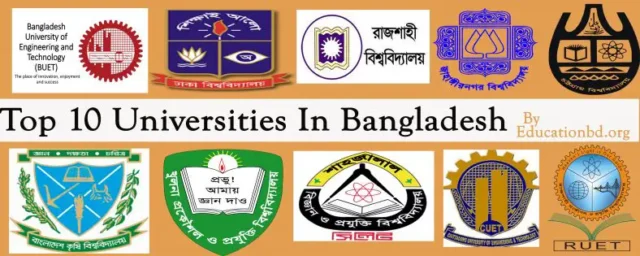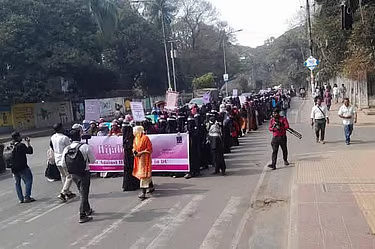By Professor Kamal Uddin
The path to the destruction of universities in Bangladesh began long ago. Whatever remained has nearly been wiped out under the fascist and authoritarian government. Throughout the entire Awami League regime, there were questions about the moral standing of universities and university teachers in terms of their social responsibility and as the conscience of the nation. During almost every government’s tenure, the autonomy of universities was repeatedly undermined. However, this reached an extreme level under the authoritarian rule of the Awami government. Therefore, university teachers played little to no role against the country’s major crises, voter fraud, dictatorship, and fascism.
University teachers largely remained silent on issues such as the protection of democracy, human rights, student repression, legitimate student movements, and the abuse of primary school teachers. However, they were united in their protest against the exclusion of university teachers from Grade-1 in the 2015 pay scale, the 2024 Pay Scheme, their inclusion in the super grade, and the demand for a separate salary structure for themselves. The role of teachers in the 2024 mass movement of students and citizens was commendable, though it received mixed reactions. Many partisan teachers openly supported the fascists. Nonetheless, the contribution of teachers and civil society to the unprecedented 2024 student uprising cannot be overlooked.
There was a deliberate plan to establish university teaching as a less significant profession during the tenure of the former authoritarian Awami government. The government adopted a grand strategy to destroy the education system, degrade the social status of teachers, and turn them into third-class citizens. Not only that, there has been a major plan to destroy primary to higher education with state support over the past few years. The authoritarian Awami government played a role in turning universities into ineffective institutions.
If a country’s government opposes its education system, there is not much more to say. However, instead of directly blaming the authoritarian Awami government for the destruction of the education system and the degradation of teachers, partisan teacher leaders blame a self-serving group. Let’s assume that some self-interested group supported the authoritarian Awami government to protect their interests or strengthen their social status. Even though the teacher leaders did not clarify who they were blaming, it is clear to us. They adopted this tactic to avoid directly accusing the authoritarian, fascist Awami government.
It is now clear that the authoritarian Awami government took these steps to make teaching seem less important and to discourage talented individuals from becoming university teachers. They did not genuinely want to restructure the state, develop the country, or implement the Smart Bangladesh plan. If they had genuinely wanted these things, improving the quality of education would have been the only way, as no other model exists. There is no country in the world that has developed by destroying its education system. The fact is, if the Awami government truly intended to transform the universities into actual universities, they wouldn’t need to listen to anyone.
There has been no proper effort by any past government to develop a new plan for universities or to enhance the quality of university education and research. As a result, what have we seen over the past few decades? Universities have lost their uniqueness and become political institutions.
However, there is another perspective to consider. Instead of just blaming the government, why don’t we engage in some self-reflection? In this context, if two fingers point at others, the remaining three certainly point back at the teachers.
Partisan teacher leaders were not just under the authoritarian Awami government; they were biased during the tenures of other governments as well. Instead of negotiating with the government for improving the quality of education, they focused on their own benefits. They secretly collaborated on the demands of students and general teachers. In the past, university teachers used to have the moral support of people from various sectors of society, but partisan teacher leaders did not receive such moral support for any of their movements. We need to explore the fundamental reasons behind this. Blaming society won’t help; people want to respect university teachers or do respect them. But if university teachers do not fulfill their national and social responsibilities, how can they expect to be respected? People are much more aware now; they have the ability to discern between truth and falsehood.
The plan to turn universities into a one-party political institution during the last Awami government involved a major role played by partisan vice-chancellors and their followers. The authoritarian Awami rulers knew very well that if they could control the universities in their favor and politically co-opt teachers, journalists, and students, it would strengthen their authoritarian power. There would be no significant criticism of the authoritarian Awami government, no protests, and ultimately, the fascist rulers would be able to stay in power for a long time. The biggest threat to the fascist Awami government came from university teachers and students. We have seen how the fascist behavior of the authoritarian Awami League government suppressed political movements. They used enforced disappearances, murders, torture, detentions, fabricated cases, and the disgraceful use of police and judiciary to suppress political movements and activities. The same strategy was employed to suppress the student revolution. But in the end, it was not possible. The authoritarian and fascist Hasina government could not survive.
On the other hand, university teachers themselves have weakened their moral position over the past few decades. Instead of standing up for the rights of teachers and students, university teachers were more focused on establishing their political ideologies. They did not have time to think about the country, the nation, or democracy. That’s why they can no longer claim to be the conscience of the nation. Therefore, alongside the authoritarian Awami government, university teachers are also significantly responsible for destroying the true character of universities and turning them into political institutions.
University teachers can easily be bought. A small lure of position makes them silent. To them, the importance of their position outweighs the rights of students and teachers. As long as university teachers do not perform their duties properly, remain partisan, and fail to call a spade a spade, they will not be able to find their backbone, and what remains of the universities will continue to deteriorate.
However, I believe it is time for university teachers to stand up. This is their opportunity to clear their tarnished reputation. I also believe that they will not come forward on their own to clear their tarnished image. For that, the current interim government and the students need to play a role. And for this, the Honorable Chief Adviser and Education Adviser of the caretaker government, both of whom were university teachers and researchers, do not need to be told what to do. They are well aware of the strategies needed to reform the universities alongside rebuilding the education system and the state. What is needed is their sincerity and action plan. The current interim government is expected to take initiatives to revamp universities for better governance, teaching, research, and knowledge creation. However, for this, partisan affiliations among university teachers and students must be completely eliminated. Teachers must be recruited based on merit and research capabilities. Teachers’ benefits and status must be established at a state level. Only then will talented individuals choose university teaching as a profession. Most importantly, higher education must be managed through the establishment of an independent and neutral higher education commission. Higher education reform can begin with these initial steps.
Author: Professor, Department of International Relations, University of Chittagong
Source: বিশ্ববিদ্যালয় ও উচ্চশিক্ষাকে ধ্বংসের হাত থেকে বাঁচাতে এখনই উদ্যোগ নিতে হবে (mzamin.com)









